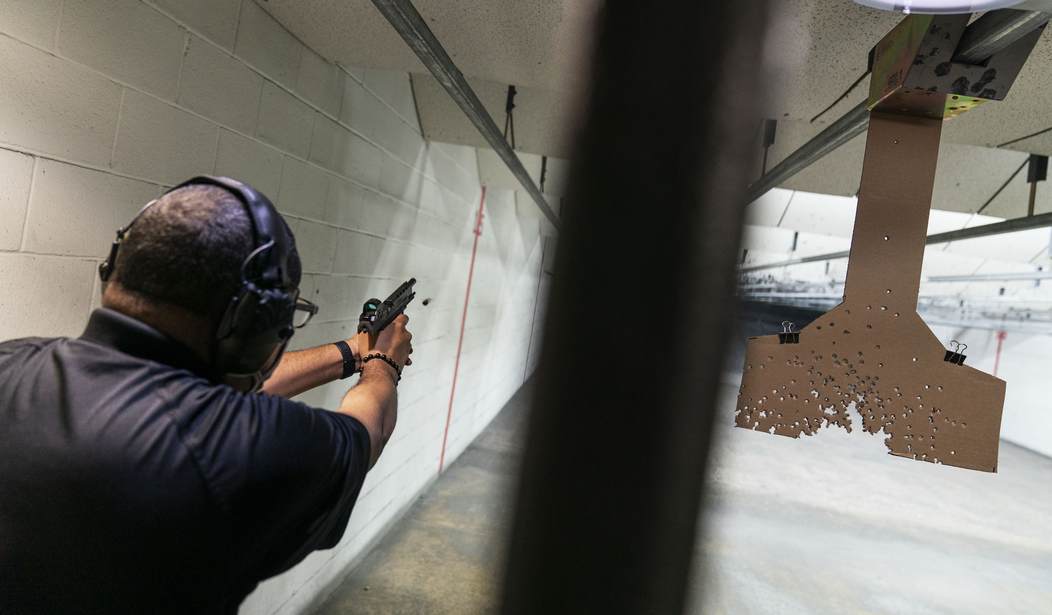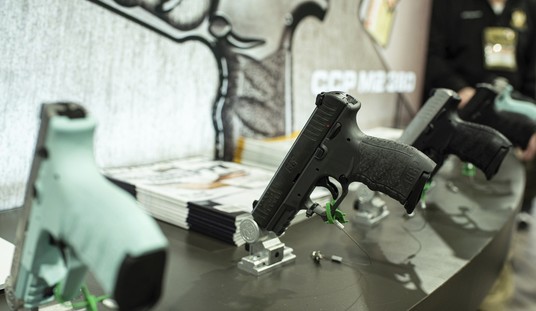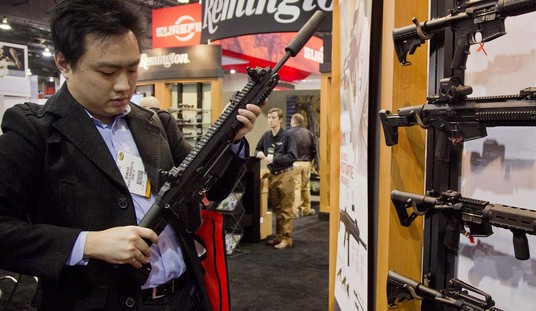I’ve never really understood the argument made by some gun controls activists who claim that the Second Amendment is racist in both origin and intent. The right of the people to keep and bear arms hasn’t always been recognized, but it’s actually gun control that’s been used to deprive minorities of their right to keep and bear arms, not the other way around.
In the pages of the Cincinnati Inquirer, attorney Rachel Citak has provided a valuable history lesson for gun control advocates and those Americans unfamiliar with the role that firearms have played in defending and advancing civil rights and equality. It’s a great and timely reminder that the Second Amendment exists to protect the right of all of us to protect ourselves and those we love.
Whether motivated by fear of slave insurrection, Native American savagery, or Black militancy, gun control has always been pushed with fear-mongering. Ultimately, the problem isn’t actually our fear of guns and violence. The problem is our fear of each other, and facing the potential of true equality among the ruled and the ruler. For everyday citizens, it’s “the ballot or the bullet” – because those are the two best levelers we have.
The problem is, both sides of the gun debate often become much more focused on defending or upending the tool rather than actually solving the problems.
“Black communities are like soft targets because (criminals) know we don’t have guns. Gun violence is not the disease – it’s the symptom,” says Philip Smith, president of the National African American Gun Association. “It’s too easy to blame guns… like using a Band-Aid fix to treat cancer. And it’s not even an ‘R’ or a ‘D’ thing. Even if they mean well, the bottom line is, rights are still being taken away – regardless of whether it’s done with a smile or not.
Smith has seen firsthand how many black Americans are embracing their Second Amendment rights. During a recent interview on Bearing Arms’ Cam & Co, the founder and president of the NAAGA told me that membership increased by 40,000 people last year, and he’s overwhelmed with the amount of interest in the organization.
As Citak explains, gun control laws that create new crimes by restricting legal gun ownership not only focus on the wrong people, but they often lead to disparate racial outcomes.
Mirroring his party cohorts at the federal level, Hamilton County’s state senator, Cecil Thomas, has introduced a flurry of gun control bills touted as “commonsense” reform. If passed, these bills would limit private gun sales between individuals; implement the so-called red flag law; increase the required age for all firearm purchases from 18 to 21; and create a patchwork of laws around the state by ending preemption and requiring everyone to follow different rules enacted by locality rather than statewide uniformity.
Gun control measures like these will inevitably inflict disproportionate harm to the Black community – especially in metropolitan areas like Cincinnati.
A 2017 Pew Research study reports that 32% of Black Americans and 49% of whites either personally own a gun or live in a household where someone else owns a gun. Even though African Americans report considerably lower rates of gun ownership than whites, there have been disproportionately higher rates of arrest for African Americans charged with weapon possession and carrying crimes over the past 10 years. Specifically, African Americans only make up 13.4% of the population, and yet the FBI reports they make up an average of 40.96% of arrests for weapons possession and carrying crimes over the past 15 years (2005 through 2019’s preliminary data).
Note that these aren’t arrests for violent crimes, merely possessory offenses. As Slate reporter Emily Bazelon discovered a couple of years ago after spending several months in Brooklyn’s “gun court,” the vast majority of those facing years in prison for possessing a gun without a license were young black men without any serious criminal history.
Here’s what predicted who ended up on the benches in gun court: race and age. Black people are less likely to own guns than white people, but the defendants in gun court were almost all black teenagers and young men. An initiative that sounded like a targeted attack on America’s gun problem looked up close more like stop-and-frisk or the war on drugs—one more way to round up young black men. Reviewing my book in the New Yorker, Adam Gopnik suggested that a kid locked up for a drug offense would have made a more representative subject. But drug charges are the old way of shunting people to prison. Gun possession, and similar offenses that states treat as violent, is the new way. And the 20-year-old whose case I followed wasn’t “the wrong kid” from the point of view of the system or the politicians that built it. His case was typical in gun court, because he was exactly the kind of person the mayor’s plan was designed to ensnare.
Bazelon walked away from her experience still believing that gun permits save lives, but was left wrestling with the conundrum of what to do about the fact that in New York City the average resident simply can’t obtain a license to carry, and even obtaining a permit to keep a gun in the home requires hundreds of dollars in application fees, character references, financial records, and a host of other personal information designed to weed out those the city views as undesirable gun owners.
For Rachel Citak, the answer is simple.
It’s time for legislators at all levels of government to educate themselves and reckon with this truth: Second Amendment history is Black history.
A society where Black lives are respected requires a government in which Black people’s gun rights are protected.
Too many gun control advocates simply don’t care about the constitutional arguments against gun control, because they view the Constitution as little more than words on a piece of paper. Citak’s argument gets to the heart of the matter; you can’t claim to care about equality and be in favor of criminal justice reform while putting more non-violent, possessory firearm offenses on the books that will end up putting a disproportionate number of black Americans in prison for something that shouldn’t be a crime in the first place. Equality for gun control advocates means everyone is equally disarmed, but for those of who view gun ownership as an individual right, the fight we face is to ensure that the people… all of the people, can keep and bear arms if they choose to do so.
Editor’s Note: Want to support Bearing Arms so we can tell the truth about Joe Biden and the Left’s radical gun control agenda? Join Bearing Arms VIP. Use the promo code GUNRIGHTS to get 25% off your membership.









